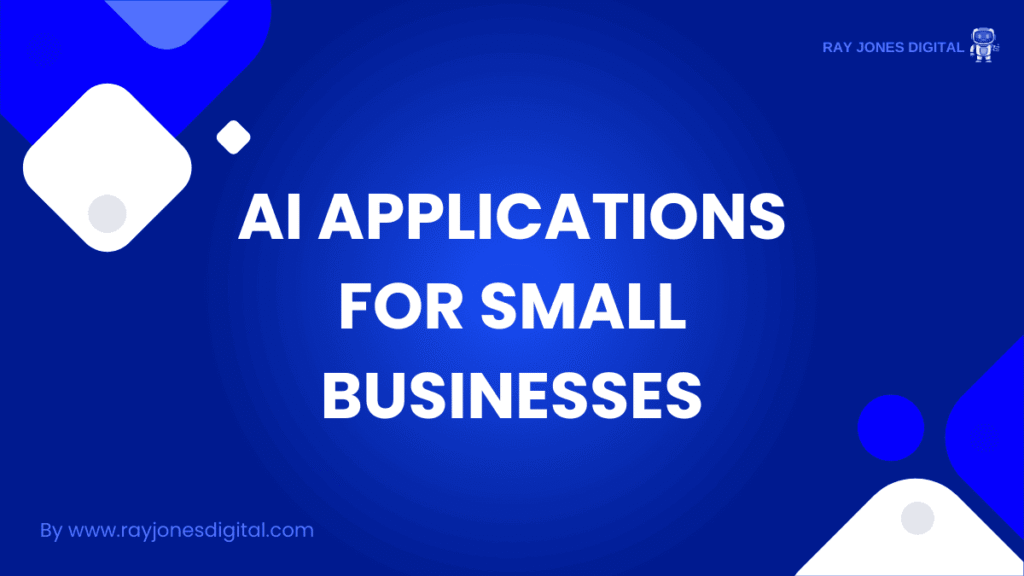
Small businesses are standing at the threshold of an AI revolution. While artificial intelligence once seemed like the exclusive domain of tech giants and large corporations, 2026 marks a turning point where AI Applications have become accessible, affordable, and essential for businesses of all sizes.
The landscape has shifted dramatically. What used to require substantial investment and technical expertise can now be implemented with user-friendly platforms and modest budgets. From automating routine tasks to enhancing customer experiences, AI is no longer a luxury—it’s becoming a necessity for staying competitive.
This comprehensive guide explores the most practical AI applications that small businesses can leverage in 2026, examining real-world benefits, implementation strategies, and the transformative potential these technologies hold for growth and efficiency.
Customer Service Revolution
AI-Powered Chatbots and Virtual Assistants
Customer service has undergone a complete transformation with AI chatbots that can handle complex queries round the clock. Modern chatbots understand context, maintain conversation history, and escalate issues to human agents when necessary.
Small businesses can deploy these tools to:
- Handle frequently asked questions instantly
- Process simple transactions and bookings
- Provide multilingual support without hiring additional staff
- Collect valuable customer feedback and data
The technology has matured to the point where customers often prefer chatbot interactions for quick queries, appreciating the immediate response times and consistent service quality.
Personalised Customer Experiences
AI algorithms analyse customer behaviour patterns to deliver personalised experiences that rival those of major retailers. Small businesses can now offer product recommendations, customised marketing messages, and tailored service offerings based on individual customer preferences and purchase history.
This personalisation extends beyond online interactions to in-store experiences, where AI can help staff identify returning customers and their preferences, creating a more welcoming and efficient service environment.
Marketing and Sales Automation
Predictive Analytics for Customer Acquisition
Small businesses can harness predictive analytics to identify the most promising leads and optimise their marketing spend. AI tools analyse customer data to predict which prospects are most likely to convert, allowing businesses to focus their efforts on high-value opportunities.
These systems can:
- Score leads based on likelihood to purchase
- Identify optimal timing for marketing campaigns
- Predict customer lifetime value
- Recommend the most effective marketing channels
Content Creation and Social Media Management
AI-powered content creation tools have reached a level of sophistication that enables small businesses to maintain consistent, high-quality marketing materials without dedicated creative teams. These tools can generate:
- Social media posts tailored to different platforms
- Product descriptions that highlight key features
- Email marketing campaigns with personalised messaging
- Blog content that addresses customer pain points
Social media management platforms now use AI to determine the best posting times, suggest relevant hashtags, and even respond to comments with appropriate, brand-consistent messages.
Financial Management and Analytics
Automated Bookkeeping and Expense Tracking
AI has revolutionised financial management for small businesses by automating tedious bookkeeping tasks. Modern accounting software can:
- Automatically categorise expenses and income
- Reconcile bank statements without manual intervention
- Generate financial reports with actionable insights
- Flag unusual transactions that might indicate errors or fraud
This automation reduces the time spent on financial administration and minimises human error, allowing business owners to focus on strategic decisions rather than data entry.
Cash Flow Forecasting
Predictive AI models analyse historical financial data, seasonal patterns, and market trends to provide accurate cash flow forecasts. Small businesses can use these insights to:
- Plan inventory purchases more effectively
- Anticipate seasonal fluctuations in revenue
- Identify potential cash flow problems before they occur
- Make informed decisions about expansion or investment
Operational Efficiency and Automation
Inventory Management Optimisation
AI-driven inventory management systems help small businesses maintain optimal stock levels by predicting demand patterns and automatically triggering reorders. These systems consider factors such as:
- Historical sales data and seasonal trends
- Lead times from suppliers
- Storage capacity and costs
- Customer demand patterns
This intelligent approach reduces both stockouts and excess inventory, improving cash flow and customer satisfaction simultaneously.
Supply Chain Optimisation
Small businesses can leverage AI to optimise their supply chains by identifying the most reliable suppliers, predicting potential disruptions, and finding cost-effective shipping solutions. AI algorithms can analyse multiple variables to recommend the best suppliers based on cost, quality, and reliability metrics.
Human Resources and Talent Management
Recruitment and Hiring Automation
AI tools streamline the recruitment process by automatically screening CVs, scheduling interviews, and identifying the best candidates based on job requirements. This automation helps small businesses:
- Reduce time-to-hire significantly
- Eliminate unconscious bias in initial screening
- Identify candidates with the right skills and cultural fit
- Manage larger volumes of applications efficiently
Employee Performance and Engagement
AI systems can analyse employee performance data to identify trends, predict turnover risk, and suggest personalised development opportunities. These insights help small businesses retain valuable employees and improve overall workplace satisfaction.
Performance management tools powered by AI can provide real-time feedback, track goal progress, and suggest training resources tailored to individual employee needs.
Security and Risk Management
Cybersecurity Enhancement
Small businesses face increasing cybersecurity threats, and AI provides affordable protection that was previously available only to large enterprises. AI-powered security systems can:
- Detect unusual network activity and potential threats
- Automatically respond to common security incidents
- Analyse email patterns to identify phishing attempts
- Monitor employee access to sensitive data
These systems learn from attack patterns and adapt their defences accordingly, providing dynamic protection that evolves with emerging threats.
Fraud Detection and Prevention
AI algorithms can identify fraudulent transactions and activities by analysing patterns in customer behaviour, payment data, and other relevant factors. This capability is particularly valuable for small businesses that cannot afford dedicated fraud prevention teams.
Implementation Strategies for Small Businesses
Starting Small and Scaling Up
The key to successful AI implementation lies in starting with manageable projects that deliver immediate value. Small businesses should begin with one or two AI applications that address their most pressing needs, then gradually expand their AI capabilities as they become more comfortable with the technology.
Priority should be given to applications that:
- Solve existing pain points
- Require minimal technical expertise to implement
- Provide measurable returns on investment
- Can be integrated with existing systems
Choosing the Right AI Tools
Small businesses should evaluate AI tools based on ease of use, cost-effectiveness, and integration capabilities. Cloud-based solutions are often preferable as they require minimal upfront investment and can scale with business growth.
Key considerations include:
- User-friendly interfaces that don’t require technical expertise
- Flexible pricing models that accommodate business growth
- Strong customer support and training resources
- Compatibility with existing business systems
Overcoming Common Challenges
Budget Constraints and ROI Concerns
Many small businesses worry about the cost of AI implementation, but the landscape has become increasingly affordable. Subscription-based AI services allow businesses to access powerful tools without significant upfront investments, and the ROI from improved efficiency and customer satisfaction often justifies the costs quickly.
Skills Gap and Training Needs
The perceived complexity of AI technology can deter small businesses from adoption. However, modern AI tools are designed for non-technical users, and many providers offer comprehensive training and support. Investing in employee training ensures successful implementation and maximises the benefits of AI adoption.
Looking Ahead: The Future of Small Business AI
The AI revolution for small businesses is just beginning. As technology continues to advance and costs decrease, AI will become even more accessible and powerful. Small businesses that embrace these technologies now will be well-positioned to compete effectively and thrive in an increasingly digital marketplace.
The most successful small businesses will be those that view AI not as a replacement for human creativity and decision-making, but as a powerful tool that amplifies their capabilities and frees them to focus on what they do best: serving their customers and growing their businesses.

I am Ray Jones Digital
My current occupations: a Digital Marketer, Local SEO expert, Link Builder, and WordPress SEO specialist. Shopify SEO, Ecommerce Store Management, and HTML & WordPress Developer I have been practicing the above mentioned services for more than 10 years now As an SEO expert working with your ongoing projects.



